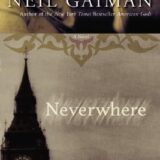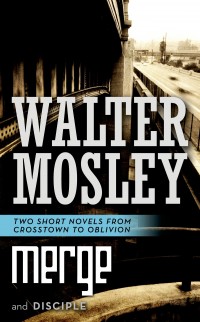 Before I was a science fiction geek, I was a mystery geek. I started with Conan Doyle, moved on to Christie and Stout and eventually read writers like Hammett and Chandler, among others. I still occasionally dip into the work of a mystery author whose writing seems interesting, which is how I discovered Walter Mosely’s Easy Rawlins novels.
Before I was a science fiction geek, I was a mystery geek. I started with Conan Doyle, moved on to Christie and Stout and eventually read writers like Hammett and Chandler, among others. I still occasionally dip into the work of a mystery author whose writing seems interesting, which is how I discovered Walter Mosely’s Easy Rawlins novels.
Rawlins was a black Second World War vet who was trying to get by in the first novel in the series, Devil in a Red Dress. (Yes, it was made into a so-so film starring Denzel Washington.) Although ostensibly mysteries focusing on Rawlins getting sucked into other people’s shenanigans, the series was an evocative look at the black American experience at different points in the country’s post-WWII history. I found the novels to be entertaining genre stories with depth.
When I heard that Mosely had started writing speculative fiction, I couldn’t wait to get my hands on some of it.
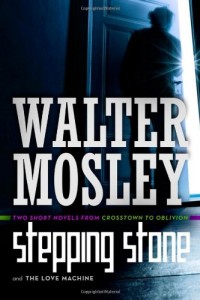 Crosstown to Oblivion is a collection of six short novels in three volumes; the novels are back to back, like the old Ace Doubles, but otherwise there is nothing old-fashioned about them. They are stories in which “Mosely entertainingly explores life’s cosmic questions. From life’s meaning to the nature of good and evil…”
Crosstown to Oblivion is a collection of six short novels in three volumes; the novels are back to back, like the old Ace Doubles, but otherwise there is nothing old-fashioned about them. They are stories in which “Mosely entertainingly explores life’s cosmic questions. From life’s meaning to the nature of good and evil…”
Each novel in the project has a similar structure: the main character is exposed to something fantastic, which, at first, he refuses to accept. In finally coming to terms with what has happened, the character is transformed and, in his new guise, attempts to transform the entire world (usually actively opposed by those in power). This brief outline may seem formulaic, but if it is, it is the formula explored so fruitfully by Joseph Campbell in The Hero’s Journey, a formula that has informed much great literature. In Crosstown to Oblivion, Mosely is reaching for something archetypal, something mythical, and I think he largely succeeds.
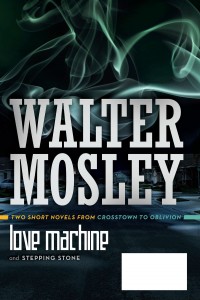 That is not to say that the stories are repetitive; in fact, they cover a wide variety of situations, all of which contain original, fully realized characters. In The Gift of Fire (my personal favourite), Prometheus is accidentally freed from his millennia of torture, and comes to Earth looking for a human being who can help him fulfill the promise of bringing fire to humanity. A simple man sees a woman that nobody else can see, which opens his mind to a world he could never otherwise have imagined in Stepping Stone. A heart-broken young man wins the lottery as a prelude to meeting an alien stick creature who wants to Merge with him.
That is not to say that the stories are repetitive; in fact, they cover a wide variety of situations, all of which contain original, fully realized characters. In The Gift of Fire (my personal favourite), Prometheus is accidentally freed from his millennia of torture, and comes to Earth looking for a human being who can help him fulfill the promise of bringing fire to humanity. A simple man sees a woman that nobody else can see, which opens his mind to a world he could never otherwise have imagined in Stepping Stone. A heart-broken young man wins the lottery as a prelude to meeting an alien stick creature who wants to Merge with him.
The protagonists of the stories are, for the most part, poor black men. On the one hand, non-white protagonists are rare in science fiction, so Mosely (himself black) deserves praise for, in this small way, expanding the boundaries of the genre. On the other hand, some readers may criticize it as stereotypical – where are the middle and upper class black men? 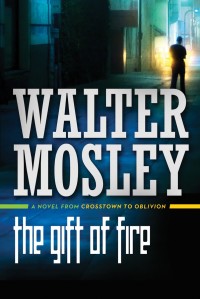 I would argue that the fact that his protagonists are mostly disadvantaged speaks to a deeper truth: spiritual advancement invariably comes from the downtrodden. Those who are comfortable in a society rarely seek enlightenment, and probably wouldn’t even recognize it if they did.
I would argue that the fact that his protagonists are mostly disadvantaged speaks to a deeper truth: spiritual advancement invariably comes from the downtrodden. Those who are comfortable in a society rarely seek enlightenment, and probably wouldn’t even recognize it if they did.
Mosely writes spare, direct prose, with a simple, straightforward sentence structure; stylistically, he reminds me of Raymond Carver. However, unlike others whose use of this style makes the details of their works hard to pin down, Mosely’s writing is precise and his characters and situations are vivid. (And, when he does occasionally throw an unusual word or complex sentence at us, it makes us pay attention because of its rarity.)
The stories are punctuated by a small number of black and white drawings, usually of the main characters at important points in the narrative. Like Mosely’s prose, the illustrations focus entirely on what is important (usually the human figures), stripping out all unnecessary background detail. And, like the prose, they are powerfully evocative.
Some people will not appreciate the techno-spirituality of Walter Mosely’s Crosstown to Oblivion novels. Those who are willing to take a chance on them, however, will find very thoughtful and rewarding books.







